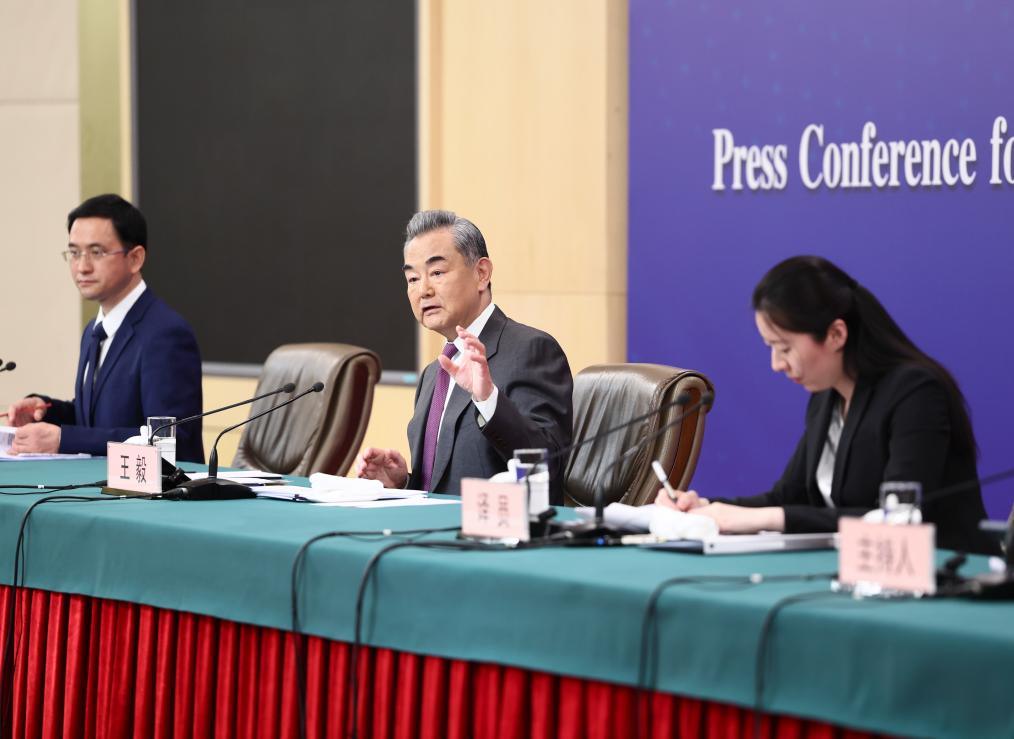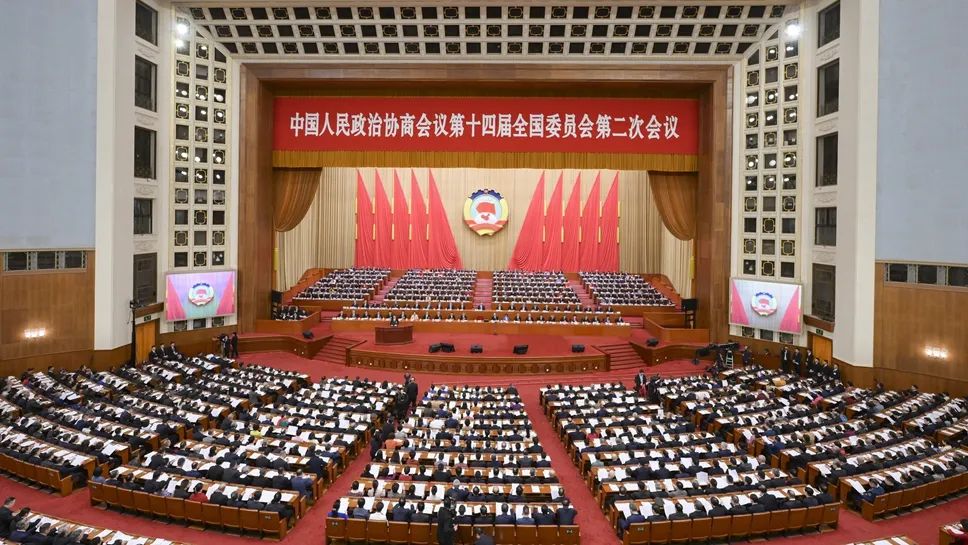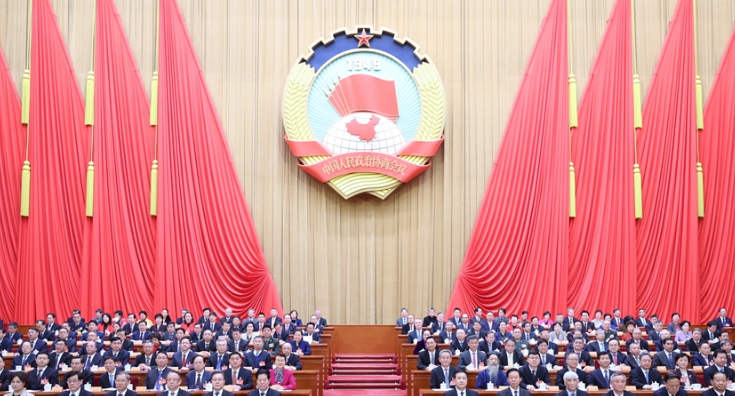CATTI-题库-真题-模拟-课程-直播
 天之聪教育
天之聪教育
 2014-03-24
2014-03-24
 国新办
国新办
 640次
640次
国务院决定建立统一的城乡居民基本养老保险制度
The State Council Decides to Establish a Unified Basic Pension System for Urban and Rural Residents
人力资源社会保障部
Ministry of Human Resources and Social Security
2014年2月26日
26 February, 2014
2014年2月7日,国务院常务会议决定,合并实施新农保、城居保制度,建立统一的城乡居民基本养老保险制度。2月21日,国务院印发《关于建立统一的城乡居民基本养老保险制度的意见》(国发〔2014〕8号)。
On 7 February 2014, the Executive Meeting of the State Council adopted the decision to integrate the New Pension System for Rural Residents with the Old-Age Insurance for Urban Residents, and to establish a unified basic pension system for urban and rural residents. On February, the State Council printed and issued The Opinion on Establishing a Unified Basic Pension System for Urban and Rural Residents.
党中央、国务院高度重视养老保险制度建设,2009年和2011年,先后启动实施新农保和城居保试点,并于2012年基本实现两项制度全覆盖。几年来,养老保险政策不断完善,基金管理总体规范,经办能力逐步加强,参保覆盖面持续扩大。截至2013年底,全国参加基本养老保险的总人数达到8.2亿人(其中城乡居民参保4.98 亿人),领取基本养老金待遇2.18亿人(其中城乡老年居民1.38亿人)。
The Central Committee of the CPC and the State Council attach great importance to the building of pension system. In 2009 and 2011, pilot projects were launched of New Pension System for Rural Residents and Old-Age Insurance for Urban Residents one after the other. Full coverage was achieved by and large in both systems in 2012. In recent years, the policies on old-age insurance are constantly improving, the fund management is generally well functioning, the competence of insurance administration is growing, and the coverage of insured population is expanding continuously. By the end of 2013, the total population covered in basic pension schemes across the country reached 820 million, including 498 million in schemes for urban and rural residents; the beneficiary population of basic pension reached 218 million, including 138 million in schemes for urban and rural residents.
建立统一的城乡居民基本养老保险制度,使全体人民公平地享有基本养老保障,是我国经济社会发展的必然要求和推进“新四化”建设的需要,既有利于促进人口纵向流动、增强社会安全感,也有利于使群众对民生改善有稳定的预期,对于拉动消费、鼓励创新创业,具有重要意义。
A unified basic pension system for urban and rural residents would enable the whole population to benefit from social security of basic pension on an equitable basis, which is necessitated by the social and economic development in China, and it is also demanded by the promotion of the new Four-Modernizations. It not only facilitates population mobility and improves security of the society, but also helps people have more predictable expectations for livelihood improvement. It is of great significance for boosting consumption and promoting innovation and entrepreneurship.
将新农保和城居保制度合并实施,建立统一的城乡居民基本养老保险制度,是实现党的十八大提出的“全面建成覆盖城乡居民的社会保障体系”目标的重要举措,是落实党的十八届三中全会关于社会保障领域重点改革任务重大部署的实际行动,也是贯彻实施社会保险法的重要任务。
To merge the New Pension System for Rural Residents and the Old-Age Insurance for Urban Residents into a unified pension system for urban and rural residents is an important measure to achieve the goal of “comprehensively establishing a social security system covering urban and rural residents” set by the 18th CPC National Congress. It is also an action to implement the social security reform strategies set by the 3rd Plenary Session of the 18th Central Committee of the CPC, and an important mission to implement the Social Insurance Law.
建立统一的城乡居民养老保险制度的目标是,到“十二五”末,在全国基本实现新农保和城居保制度合并实施,并与职工基本养老保险制度相衔接;2020年前,全面建成公平、统一、规范的城乡居民养老保险制度,与社会救助、社会福利等其他社会保障政策相配套,充分发挥家庭养老等传统保障方式的积极作用,更好保障参保城乡居民的老年基本生活。
The objective of establishing a unified pension system for urban and rural residents is as follows: by the end of the Twelfth Five Year Plan Period, to achieve integration by and large of the New Pension System for Rural Residents and the Old-Age Insurance for Urban Residents, and to make the system coherent with the Urban Employees Basic Old-Age Insurance; and by 2020, to comprehensively establish a fair, unified and regulated pension system for urban and rural residents, which will be mutually complementary with other social protection policies such as social assistance and social welfare, together with the positive contribution from the traditional family-based elderly care, will better safeguard the basic livelihood of the elderly of the insured population in urban and rural areas.
通过合并实施新农保和城居保,形成“四个统一”:一是统一制度名称。合并后的新农保和城居保统一称为“城乡居民基本养老保险制度”,并与城镇职工基本养老保险制度并行,共同构成我国基本养老保险制度体系。二是统一政策标准。在新农保、城居保原来分别设置的缴费档次的基础上,统一归并、增设缴费档次,使城乡居民缴费有更多自主选择权。城乡居民基础养老金最低标准由中央统一确定。三是统一管理服务。科学整合现有公共服务资源和社会保险经办管理资源,建立健全统一的城乡居民养老保险经办机构;将新农保基金和城居保基金合并为城乡居民养老保险基金,逐步推进省级管理,按国家统一规定投资运营。四是统一信息系统。在现有业务管理系统基础上,整合形成省级集中的城乡居民养老保险信息管理系统,加快发行全国统一的社会保障卡,并与其他公民信息管理系统实现信息资源共享。
Through the integration of the two insurance schemes, we will achieve “four unifications”. First, unification in name of the insurance schemes. The system after the merger of the two schemes will be named “Pension System for Urban and Rural Residents”, and will run parallel with the Urban Employees Basic Old-Age Insurance. These two will constitute the basic old-age insurance system in China. Second, unification in policy standard. More choices will be provided for urban and rural residents concerning contribution—apart from the integrated contribution steps in the two previous insurance schemes, new steps will be added. The Central Government will determine the minimum base pension for this new system. Third, unification in administration service. Current resources of public services and social insurance administration and management will be pooled in a rational way to establish well-functioning administration agencies for the unified pension system for urban and rural residents. The funds from the two previous schemes will be integrated as pension fund for urban and rural residents, which will be gradually managed at the provincial level. Investment and operations of the fund will follow general national regulations. Fourth, unification in information system. Based on the current management system, a hub-type information management system will be formed at the provincial level for pension system for urban and rural residents, with streamlined resources. Distribution of standardized national social security cards will be accelerated, and the information recorded in the cards shall be accessible from other information management systems of the citizens.
关于参保范围。《意见》规定。年满16周岁(不含在校学生),非国家机关和事业单位工作人员及不属于职工基本养老保险制度覆盖范围的城乡居民,可以在户籍地参加城乡居民养老保险。这一规定明确了在户籍地参保的原则,把原来没有被基本养老保险制度覆盖的人员全部纳入城乡居民养老保险的覆盖范围,同时维持自愿参保的原则,鼓励符合条件的居民早参保,以利于获得更加可靠的养老保障。
Scope of coverage. The Opinion stipulates that any urban or rural resident above 16 (excluding students at school) who is not working for state organs or public institutions and not eligible for Urban Employees Basic Old-Age Insurance may join Pension System for Urban and Rural Residents at his place of household registration. This rule stipulates the principle of insurance coverage at the place of household registration, and enables all people not already covered by the basic old-age insurance to be covered by the Pension System for Urban and Rural Residents. The principle of voluntary participation is maintained. The system encourages early enrolment of eligible residents to get more reliable old-age protection.
关于筹资方式。城乡居民养老保险仍然实行个人缴费、集体补助、政府补贴相结合的筹资方式。参加城乡居民养老保险的人员应当按规定缴纳养老保险费。缴费标准由原来新农保和城居保的分别设置,统一归并调整为每年100元至2000元12个档次。省(自治区、直辖市)人民政府可以根据实际情况增设缴费档次,最高缴费档次标准原则上不超过当地灵活就业人员参加职工基本养老保险的年缴费额。参保人自主选择缴费档次,并获得相应的基本养老保险待遇,多缴多得,体现了社会保险制度权利与义务对应的原则。归并和增设缴费档次,为有更高缴费意愿和能力的居民提供了更多选择。明确个人缴费上限,主要是体现“保基本”特点,并保持与城镇职工基本养老保险制度的合理关系。集体补助方面,在原有政策基础上增加了公益慈善组织的资助,有利于拓宽资金筹集渠道,提高参保人员的待遇水平。政府补贴方面,《意见》规定对选择500元及以上缴费档次的,补贴标准增加到不低于每人每年60元,进一步强化了多缴多补的激励机制,以引导有意愿和能力的参保居民选择较高档次缴费。
Financing methods. The Pension System for Urban and Rural Residents will continue to follow the finance mode combining individual contributions, collective subsidies and government subsidies. The participants shall make due contributions in line with the regulations. The contribution standards set respectively in the previous New Pension System for Rural Residents and the Old-Age Insurance for Urban Residents will be merged and adjusted to 12 steps ranging from 100 Yuan per year to 2000 Yuan per year. The provincial people’s government (of an autonomous region or municipality) may add more steps in accordance with the local realities. The top level in principle shall not surpass the annual contribution amount of the local people in flexible employment in Urban Employees Basic Old-Age Insurance. The participant shall voluntarily choose his contribution step and get the corresponding entitlement. The more one contributes, the more benefits he will get in the end, which demonstrates the principle of rights matching obligations in the social insurance system. The merging and adding of contribution steps have provided more options to residents who are ready and affordable to make more contributions. Setting a ceiling for individual contribution reflects the feature of “basic guarantee” and puts the system in rational correlation with the Urban Employees Basic Old-Age Insurance. On the part of collective subsidies, apart from what is laid down in current policies, the financial assistance from charity organizations is introduced, which will provide more channels of fund-raising and increase benefit level of the covered persons. On the part of government subsidies, the Opinion stipulates that, for those selecting the step of 500 Yuan or above, the annual subsidy level is raised to no less than 60 Yuan per person. The incentive mechanism of more subsidies for more contributions is further strengthened, in order to encourage the covered residents who want and can pay more to select higher steps of contribution.
关于个人账户管理。国家为每个参保人员建立终身记录的养老保险个人账户,个人缴费、地方政府对参保人的缴费补贴、集体补助及其他社会经济组织、公益慈善组织、个人对参保人的缴费资助,全部记入个人账户。个人账户储存额按国家规定计息。养老保险个人账户一经建立,终身不变,无论在哪缴费,也无论是否间断性缴费,个人账户都累计记录参保人权益;除个人缴费外,政府补贴、集体补助和其他资助也都计入个人账户,体现了国家对参保缴费的支持。
Management of individual accounts. The State sets up an individual account for every covered person with a life-long record. The individual contributions, local government’s subsidies, collective subsidies and assistances from other social and economic organizations, charity organizations and individuals for the covered person shall all be recorded into his individual account. Interests will be added to the deposits according to state regulations. Once the individual account of pension is set up, it remains valid for a whole life. Wherever the covered person contributes and no matter if the contribution is intermittent, the individual account will record the entitlements of the covered person consistently. In addition to individual contributions, the government subsidies, collective subsidies and other financial assistances are also recorded into individual account, which reflects the State’s support for insurance participation and contribution payment.
关于养老保险待遇。待遇领取条件保持不变,城乡居民养老保险待遇由基础养老金和个人账户养老金组成,并支付终身。基础养老金仍由中央确定最低标准,并将建立正常调整机制。地方政府可根据实际情况提高当地基础养老金标准,对长期缴费的,可适当加发基础养老金,以鼓励长缴多得。城乡居民养老保险待遇领取人员死亡的,从次月起停止支付其养老金。有条件的地方政府可以结合本地实际探索建立丧葬补助金制度。这是依据社会保险法,总结新农保、城居保试点经验作出的政策完善,有助于减轻参保居民家庭的丧葬费用负担,也有助于及时核查参保人领取待遇的信息。参保人死亡后,个人账户余额可以全额继承。
Pension benefits. The qualifications for benefit-claiming remain unchanged. The benefit of Pension for Urban and Rural Residents consists of base pension and individual-account benefit, and lasts for a life time. The central government sets the minimum standard of the base pension and sets up a mechanism of regular adjustment. In line with the actual situation, the local government may raise its standard of base pension. The local government may also pay more base pensions to those with a long history of contributions, in order to encourage long contribution for more benefits. When the beneficiary of the Pension for Urban and Rural Residents deceases, the payment of his benefits will cease from the next month after his death. The local government, if able to afford it, may explore to establish a funeral allowance system based on local condition. This is a policy improvement in line with the Social Insurance Law and based on the experiences accumulated from the pilot programmes of New Pension System for Rural Residents and the Old-Age Insurance for Urban Residents. It is conducive to alleviating the burden of funeral costs in those insured households, and to timely checking the information on the benefits claimed by the insured. The balance in the individual account can be inherited in full upon the death of the insured.
关于转移接续。参加城乡居民养老保险的人员,在缴费期间户籍迁移、需要跨地区转移城乡居民养老保险关系的,可在迁入地申请转移养老保险关系,一次性转移个人账户全部储存额,并按迁入地规定继续参保缴费,缴费年限累计计算。对已经按规定领取居民养老保险待遇的,无论户籍是否迁移,其养老保险关系不转移。对于在居民和职工养老保险制度之间进行转移的,按《城乡养老保险制度衔接暂行办法》执行。这是总结新农保、城居保试点及职工养老保险跨地区接续工作经验,根据城镇化进程中人口流动的实际情况作出的规定,有利于维护参保人员在流动过程中的累计权益。
Account transfer and continuation. For any insured person in the Pension for Urban and Rural Residents, if he needs to transfer his pension account to another region due to transfer of his household registration when he is still making contributions, he may apply for the transfer at the place he moves into. A lump-sum transfer of the full balance in his individual account will be processed. The person shall continue to be insured and make contributions according to the local regulations of the place he moves into. The lengths of contribution payment shall be accumulated continually. For the person already claiming pension benefits as prescribed, his pension account shall not transfer regardless of any change of his household registration. For the transfers between pension for the residents and urban employees basic old-age insurance, they shall be governed by Interim Methods on Linking Old-Age Insurance Systems in Urban and Rural Areas. These regulations take in the experiences drawn upon the pilot programmes of cross-district transfers in New Pension System for Rural Residents, Old-Age Insurance for Urban Residents and Urban Employees Basic Old-Age Insurance, and also take into account of population mobility in the process of urbanization. It is helpful to safeguard the accumulated rights and interests of the mobile insured people.
关于管理和服务。针对城乡居民人口数量大、居住分散的实际情况,《意见》要求省级人民政府切实加强城乡居民养老保险经办能力建设,结合本地实际,科学整合现有公共服务资源和社会保险经办管理资源,充实加强基层经办力量,做到精确管理,便捷服务。要求各地加强信息化建设,将信息网络向基层延伸;大力推行全国统一的社会保障卡,方便参保居民持卡缴费、领取待遇和查询本人参保信息。
Administration and services. Given the situation of a large population scattering around in urban and rural areas, the Opinion requires people’s governments at provincial level to strengthen, in real terms, capacity building of administration of Pension for Urban and Rural Residents. The governments are required to integrate the existing public service resources and social insurance administrative and management resources based on the local specific conditions, and to reinforce the grass-root administrative agencies, so as to achieve precision management and provide convenient services. The Opinion also requires all localities to improve information systems, to extend information networks to grass-root areas. A nationwide standardized social insurance card system is promoted vigorously, which facilitates any insured person to make contributions, receive benefits and make inquiries of his insurance information with the card.
点击查看口译资料,热点口译专题,阅读更多相关文章!

 点赞(0)
点赞(0)

 收藏
收藏

3月7日,十四届全国人大二次会议在北京梅地亚中心新闻发布厅举行记者会。中共中央政治局委员、外交部长王毅就中国外交政策和对外关系相关问题回答中外记者提问。
新华网&CGTN 2024-03-07 15:18:50
 收藏资讯
收藏资讯

根据会议议程,国务院总理李强代表国务院向大会作政府工作报告。报告共分三个部分:一、2023年工作回顾;二、2024年经济社会发展总体要求和政策取向;三、2024年政府工作任务。
新华网&CGTN 2024-03-05 20:56:56
 收藏资讯
收藏资讯

2023年是全面贯彻落实中共二十大精神的开局之年。以习近平同志为核心的中共中央团结带领全党全国各族人民,坚持稳中求进工作总基调,接续奋斗、砥砺前行,坚决克服内外困难,全面深化改革开放,新冠疫情防控平稳转段,高质量发展扎实推进,科技创新实现新突破,安全发展基础巩固夯实,民生保障有力有效,经济社会发展主要预期目标圆满完成,社会大局保持稳定,全面建设社会主义现代化国家迈出坚实步伐,极大增强了全国各族人民信心和底气。
新华网&CGTN 2024-03-05 18:18:43
 收藏资讯
收藏资讯

女士们、先生们,各位媒体朋友们,下午好!现在举行全国政协十四届二次会议新闻发布会。我们今天的发言人是全国政协十四届二次会议副秘书长兼新闻发言人刘结一先生。我是全国政协十四届二次会议副秘书长邹加怡,今天的新闻发布会由我来主持。坐在左边的这位是全国政协办公厅新闻局局长周北川先生,他会协助我点请记者朋友提问。下面,先请刘结一先生介绍全国政协十四届二次会议的总体安排,之后请媒体朋友们提问。
新华网&CGTN 2024-03-05 18:05:30
 收藏资讯
收藏资讯